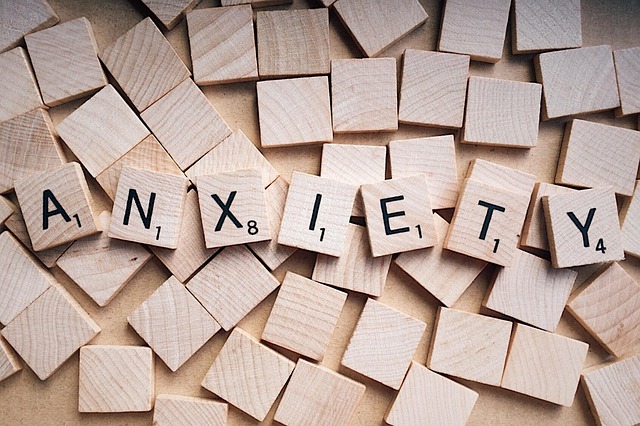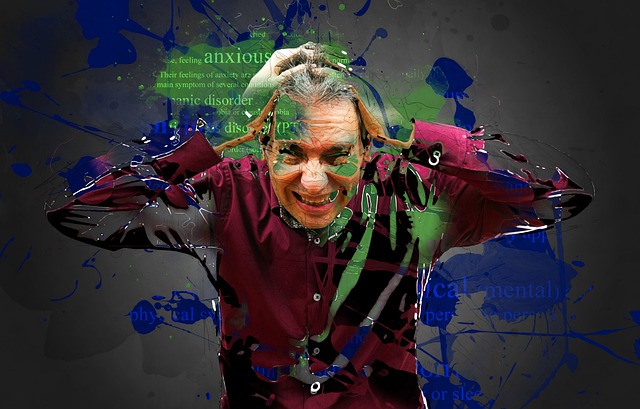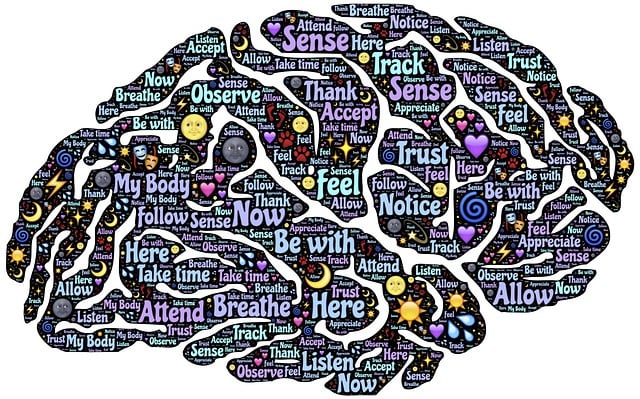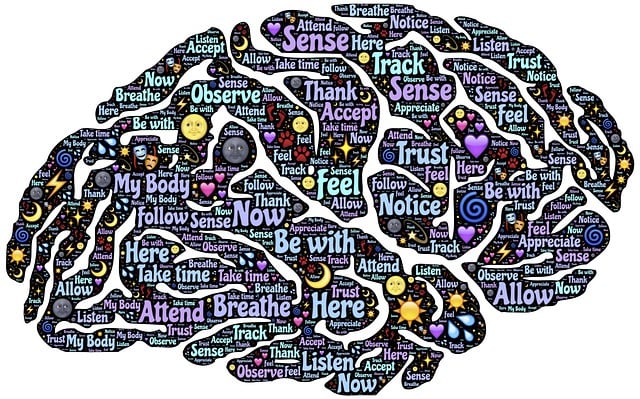Burnout among healthcare providers, particularly those in demanding specialties like Therapy for Adults EMDR Certified, is a growing concern impacting well-being, patient care quality, and system sustainability. High workload pressures, complex cases, and limited resources contribute to emotional exhaustion, depersonalization, and reduced personal accomplishment. Solutions include improved staffing ratios, enhanced support services, robust Mood Management strategies, Emotional Intelligence training, and self-care practices. EMDR therapy helps process traumatic memories, reduces emotional intensity, and promotes resilience. Organizations prioritizing mental health through outreach and therapy sessions create supportive environments. Self-care involves exercise, mindfulness, hobbies, and social connections. A holistic approach including EMDR, social skills training, and stress management techniques prevents burnout and enhances patient care. Supportive work environments with open communication, collaborative problem-solving, and relaxed spaces improve job satisfaction. Certified EMDR therapy, compassion cultivation, and self-esteem improvement techniques foster long-term well-being for healthcare providers.
Healthcare provider burnout is a growing concern, impacting not just individuals but the entire healthcare system. This comprehensive guide explores effective strategies to prevent and mitigate burnout among medical professionals. We delve into the root causes, focusing on understanding the unique challenges they face. Key approaches include EMDR therapy—a proven method for trauma resolution—and self-care practices fostering resilience. Additionally, we examine evidence-based interventions and the creation of supportive work environments to enhance long-term well-being, emphasizing the value of certified EMDR therapists in adult mental health care.
- Understanding Burnout Among Healthcare Providers
- The Role of EMDR Therapy in Burnout Prevention
- Self-Care Strategies for Lasting Resilience
- Creating Supportive Work Environments
- Evidence-Based Interventions for Long-Term Well-being
Understanding Burnout Among Healthcare Providers

Burnout among healthcare providers is a growing concern, impacting not only individual well-being but also patient care quality and the overall sustainability of healthcare systems. It manifests as a state of emotional exhaustion, depersonalization, and reduced personal accomplishment, often stemming from high workload pressures, complex patient cases, and limited resources. Healthcare professionals, particularly those in demanding specialties like Therapy for Adults EMDR Certified, are at heightened risk due to prolonged exposure to traumatic experiences and intense emotional demands.
Understanding burnout requires a multifaceted approach, including recognizing the unique challenges faced by healthcare providers. Mental Health Policy Analysis and Advocacy plays a crucial role in identifying systemic factors contributing to burnout and advocating for evidence-based solutions such as improved staffing ratios, enhanced access to support services, and robust Mood Management strategies integrated into healthcare training. Moreover, cultivating Emotional Intelligence can equip healthcare professionals with essential coping mechanisms and empathy-building skills to navigate stressful situations more effectively, mitigating the risk of burnout over time.
The Role of EMDR Therapy in Burnout Prevention

Emotional Freedom Technique (EFT), commonly known as EMDR therapy, has emerged as a powerful tool in the arsenal for healthcare provider burnout prevention. This therapy for adults focuses on helping individuals process and resolve traumatic memories or distressing experiences, which can significantly contribute to stress and burnout. By tapping into specific points while recalling these events, EMDR certified therapists facilitate the brain’s natural healing process, reducing the emotional intensity associated with past traumas. As a result, healthcare providers can develop healthier coping mechanisms, enhance resilience, and improve overall well-being, thereby mitigating the risks of burnout.
Integrating self-care practices alongside EMDR therapy is essential for long-term success. Healthcare professionals who prioritize mental health awareness through community outreach program implementation or individual therapy sessions are better equipped to handle the demands of their roles. By fostering a culture that openly discusses and addresses stress, burnout, and mental health concerns, healthcare organizations can create an environment that supports the holistic well-being of their providers, leading to improved patient care and job satisfaction.
Self-Care Strategies for Lasting Resilience

In the relentless pursuit of providing quality healthcare, professionals often neglect their own well-being, setting the stage for burnout. Self-care isn’t a luxury but an essential strategy to combat this growing concern. It involves integrating practices that replenish energy and foster mental resilience. From regular exercise and mindfulness meditation to engaging in hobbies and connecting with loved ones, these activities serve as pillars of resistance against stress and exhaustion.
Therapy, specifically EMDR (Eye Movement Desensitization and Reprocessing) certified for adults, plays a pivotal role in enhancing mental health awareness. It empowers individuals to process traumatic memories and emotions effectively, boosting their ability to cope with challenges. Coupled with the development of coping skills through social skills training and stress management techniques, healthcare providers can cultivate lasting resilience. This multifaceted approach not only prevents burnout but also enables professionals to deliver optimal patient care with renewed passion and energy.
Creating Supportive Work Environments

Creating supportive work environments is a cornerstone in preventing healthcare provider burnout. Workspaces that prioritize open communication and collaborative problem-solving foster a sense of belonging and purpose among staff, reducing stress levels and promoting job satisfaction. Implementing Mind Over Matter principles and Mental Health Education Programs can significantly enhance professionals’ ability to manage workplace pressures. These programs often include techniques like EMDR therapy for adults, which has been proven effective in cultivating inner strength development, allowing providers to navigate challenging situations with resilience.
Additionally, designing environments that encourage breaks and promote work-life balance is essential. Relaxed spaces within the healthcare facility, along with flexible scheduling options, can help alleviate tension and enhance staff well-being. These initiatives not only prevent burnout but also contribute to improved patient care as happier, more resilient healthcare providers tend to deliver higher-quality services.
Evidence-Based Interventions for Long-Term Well-being

Evidence-based interventions play a pivotal role in mitigating healthcare provider burnout and fostering long-term well-being. Therapies like Eye Movement Desensitization and Reprocessing (EMDR), certified by specialized practitioners, have proven effective in treating trauma and improving mental wellness. This approach leverages the mind’s natural healing abilities, making it an invaluable tool for frontline workers.
Complementing EMDR therapy, compassion cultivation practices and self-esteem improvement techniques create a robust framework. The Mental Wellness Podcast Series Production offers engaging content that educates healthcare professionals on these practices, encouraging them to prioritize personal mental health alongside patient care. By integrating such evidence-based strategies into their routines, healthcare providers can enhance resilience, reduce stress, and sustain the compassion vital for quality patient interactions.
Burnout among healthcare providers is a pressing issue, but with the right strategies, it can be effectively mitigated. By understanding the signs and causes of burnout, incorporating evidence-based interventions such as EMDR therapy for adults, prioritizing self-care practices, fostering supportive work environments, and adopting long-term wellness programs, healthcare professionals can enhance their resilience and prevent burnout. These strategies not only benefit individual providers but also contribute to improved patient care and organizational success.










